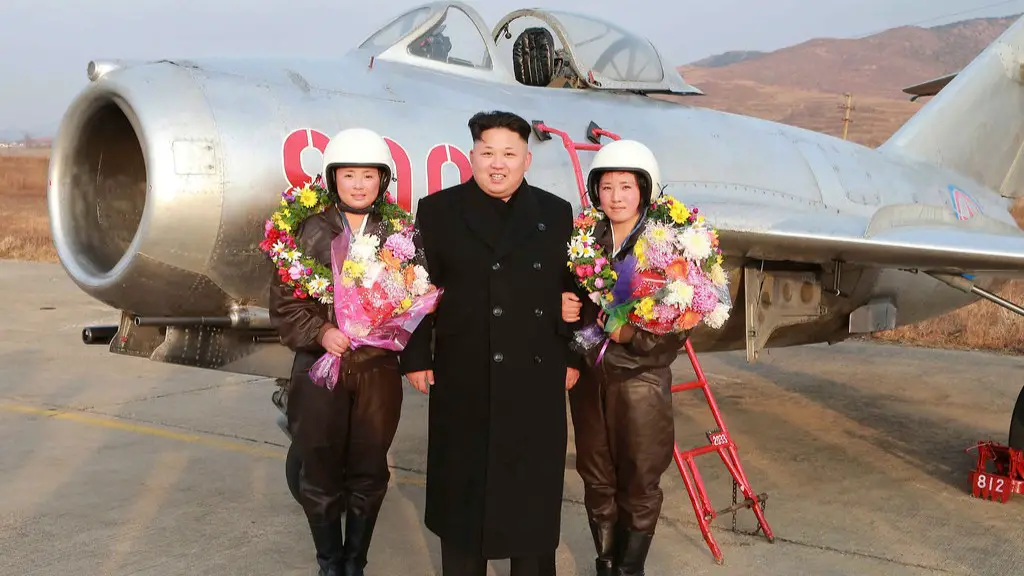Introduction
North Korea, officially called the Democratic People’s Republic of Korea, has been a source of tension and diplomatic concern for decades. It is an authoritarian regime replete with acute human rights abuses and seemingly endless hostility towards its neighbors. Given these oppressive actions, it would be easy to think of North Korea as an enemy, or even to entertain the thought of ending the dictatorship by force. But would that really solve anything? Can we really destroy North Korea?
Consequences of War on North and South Korea
The question of whether or not we can just destroy North Korea boils down to one key factor: the consequences of doing so would likely be devastating across the Korean Peninsula, and in East Asia as a whole. As highly-populated as North Korea is, it is surrounded on all sides by some of the most populated countries in the world. South Korea alone is home to over 51 million people and has prosperous economic and political relations with its western neighbors. An all-out war in North Korea would not only endanger civilians on both sides of the border, but could potentially trigger an economic crisis in East Asia.
Upholding International Law
Not only would a conflict in North Korea be immensely destructive and cause mass civilian casualties, but it would also be in direct violation of international law. Indeed, Article 2(4) of the United Nations Charter states that “All members shall refrain in their international relations from the threat or use of force against the territorial integrity or political independence of any state.” This means that any direct action taken against North Korea could not only be considered unjustified, but could even be deemed illegal by the international community.
Complications from China
China is another major concern when it comes to the destruction of North Korea. Over the decades, the two countries have developed a complex relationship and China has become a key ally of the North Korean regime. As a result, if the United States or its allies were to attack North Korea, China could very well get involved. This could potentially turn any conflict with North Korea into a full-fledged war with China, a situation that no one wants.
North Korea’s Nuclear Program
Finally, North Korea’s nuclear program is another key factor to consider when attempting to answer the question of “can we just destroy North Korea?”. North Korea is one of only nine countries in the world to possess nuclear weapons, and its stockpile is estimated to be around 20-30 warheads. As such, any sort of violent action taken against the country could result in the possibility of an exchange of nuclear weapons and an even greater loss of life.
Ending the Crisis with Strategic Negotiations
Given the potential consequences of a war in North Korea, it is clear that a more diplomatic solution must be found. Despite its increasing isolation, North Korea remains a part of the international community, and as such there must be channels for communication and negotiation. For instance, North Korea has participated in numerous multilateral negotiations in the past and has even signed a number of international agreements. As such, any sort of resolution to the conflict should start with direct talks between all of the parties involved.
Using Sanctions As Leverage
In addition to negotiations, international sanctions are another tool that could be used to put pressure on North Korea. In fact, a number of countries (including the United States and China) have imposed sanctions on North Korea in an attempt to dissuade the regime from further nuclear development and threatening activities. While sanctions are not a perfect solution, they can at least provide some leverage in the ongoing negotiations and provide an opportunity for a peaceful resolution of the conflict.
China’s Role in the Crisis
China’s role in the crisis is of particular importance. As a signatory to the United Nations charter, China is obligated to take a stance on international conflicts. And as the biggest economic and military power in East Asia, it has a great deal of influence over the situation. Thus, it is essential for China to get involved in any peace process and show a commitment to a diplomatic resolution to the crisis.
Engaging North Korea’s Allies in Peace Building
Countries such as South Korea and Japan are also important players in this process. Both countries have diplomatic relations with North Korea and both are party to the Six-Party Talks, a multilateral diplomatic process designed to address the crisis. As such, they must use their diplomatic connections with North Korea and engage with their allies in the Six-Party Talks to push for a peaceful solution.
Putting Pressure on the North Korean Regime
North Korea’s government must also be held accountable for its actions. It has long sought to maintain a hardline stance against the international community and has continued to engage in hostile activities, including the development of nuclear weapons. As such, it is essential for the international community to take a firm stance against these actions and put pressure on the North Korean regime to change its policies.
Exploring Alternative Solutions
Lastly, it is essential for the international community to explore all viable options and look for alternative solutions. For instance, economic incentives and other forms of assistance could be offered to North Korea in exchange for a commitment to peace and the dismantling of its nuclear arsenal. Moreover, efforts should be made to open up channels of communication between North Korea and its neighbors in order to foster a better understanding and begin a process of long-term reconciliation.


